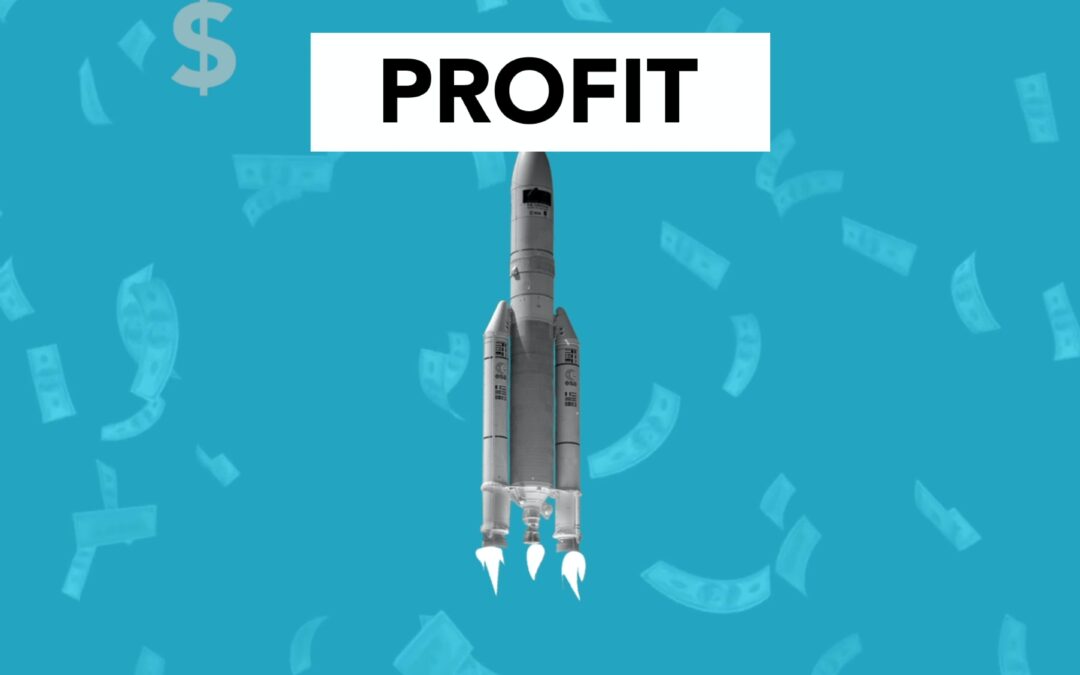
by PHX Startup Week | Apr 3, 2023 | Uncategorized
Starting a sustainability company can be a rewarding and impactful venture. Whether you’re an entrepreneur with a passion for environmentalism, or a seasoned business professional looking to make a positive difference, the sustainability industry offers a wealth of opportunities. In this article, we’ll explore the steps you can take to start a successful sustainability company.
- Identify your area of focus: The sustainability industry is vast, encompassing a wide range of products, services, and practices. To be successful, you’ll need to identify the area of sustainability that you’re most passionate about and have the most expertise in. This could be anything from renewable energy to sustainable agriculture, from sustainable fashion to green buildings.
- Conduct market research: Once you’ve identified your area of focus, it’s important to conduct thorough market research. This will help you understand the demand for your product or service, the competition, and the best ways to reach your target market.
- Develop a business plan: A well-developed business plan is essential for any successful startup. Your business plan should outline your vision, mission, and goals, as well as your target market, marketing strategy, and financial projections.
- Secure funding: Starting a sustainability company can be expensive, so it’s important to secure sufficient funding. This could come from a combination of personal savings, loans, grants, and investment from friends, family, and investors.
- Build a team: A strong team is key to the success of any startup, and a sustainability company is no exception. Look for individuals who share your passion for sustainability and who bring a diverse set of skills and experience to the table.
- Establish your brand: Your brand is an essential part of your sustainability company, and it should reflect your values, mission, and personality. Consider developing a unique logo, website, and social media presence to help establish your brand and reach your target market.
- Launch and promote your product or service: Once your sustainability company is up and running, it’s important to promote your product or service to your target market. This could involve a combination of traditional advertising, social media marketing, and public relations.
- Measure and improve your sustainability performance: Finally, it’s important to measure and improve your sustainability performance on an ongoing basis. This could involve tracking your carbon footprint, reducing waste, and implementing environmentally-friendly practices in your business operations.
Starting a sustainability company can be a rewarding and impactful venture. By following these steps, you can lay the foundation for a successful and sustainable business that makes a positive difference in the world. With hard work, dedication, and a passion for sustainability, you can create a thriving business that truly makes a difference.

by PHX Startup Week | Apr 3, 2023 | Uncategorized
The sustainability industry has a rich and complex history, marked by numerous significant events and milestones. Sustainability, as a concept, has been around for centuries, but it has only recently gained traction as a mainstream business and societal concern. In this article, we’ll examine the history of the sustainability industry, exploring its origins, evolution, and current state.
The idea of sustainability has been around for thousands of years, dating back to ancient civilizations that sought to live in harmony with their environment. The concept of “sustainability” was first used in the modern sense in the late 1980s, when the United Nations World Commission on Environment and Development defined it as “meeting the needs of the present without compromising the ability of future generations to meet their own needs.”
The sustainability industry began to take shape in the late 20th century, as environmental awareness and concern grew. In 1987, the United Nations published the Brundtland Report, which defined sustainable development as “development that meets the needs of the present without compromising the ability of future generations to meet their own needs.” This report helped to establish the importance of sustainability and set the stage for the development of the sustainability industry.
The 1990s saw the growth of environmental organizations, green products, and sustainable business practices. Companies such as Patagonia and The Body Shop emerged as pioneers in the sustainable fashion and personal care industries, while large corporations such as Walmart and General Electric began to adopt sustainability as a core business strategy. The decade also saw the launch of the Global Reporting Initiative, which established guidelines for companies to report on their sustainability performance.
In the early 2000s, the sustainability industry continued to grow and evolve, driven by a combination of consumer demand, government regulation, and corporate responsibility. The development of the United Nations’ Sustainable Development Goals in 2015 helped to further define and focus the sustainability industry, providing a framework for companies and organizations to measure and improve their sustainability performance.
Today, the sustainability industry is a rapidly growing and evolving sector, encompassing a wide range of products, services, and practices. From renewable energy to sustainable agriculture, from sustainable fashion to green buildings, the sustainability industry is transforming the way we live and work. Major companies and organizations are investing in sustainability, and governments are implementing policies and regulations to encourage sustainable practices.
In conclusion, the sustainability industry has a rich and complex history, marked by numerous significant events and milestones. From its origins as a concept in ancient civilizations to its current status as a rapidly growing and evolving sector, the sustainability industry is transforming the way we live and work. With continued investment and innovation, it will play a critical role in addressing the environmental and social challenges facing our world today.

by PHX Startup Week | Mar 31, 2023 | Uncategorized
The software as a service (SAAS) industry offers a wide range of career opportunities for those with the right skills and interests. Here are some of the key job titles and responsibilities within the SAAS industry, along with the skills and interests that are essential for success in these roles:
- Software Development: Software developers are the backbone of the SAAS industry, responsible for designing, building, and maintaining software applications. To succeed in this role, you should have a strong background in computer science and programming, along with excellent problem-solving and communication skills.
- Product Management: Product managers are responsible for defining and delivering products that meet the needs of the market. This role requires a combination of technical and business skills, along with the ability to work effectively with cross-functional teams. To succeed in product management, you should have a deep understanding of the software development process and a passion for creating great products.
- Sales: Sales professionals play a critical role in the SAAS industry, responsible for identifying and closing new business opportunities. To succeed in sales, you should have strong interpersonal skills, a high level of energy, and a passion for helping customers succeed.
- Marketing: Marketing professionals are responsible for building awareness and demand for SAAS products and services. This role requires a combination of technical and creative skills, along with the ability to analyze and interpret data to inform marketing strategies. To succeed in marketing, you should have a passion for storytelling and a deep understanding of the target audience.
- Customer Success: Customer success professionals are responsible for ensuring that customers are able to realize the full value of their SAAS investment. This role requires strong customer service skills, the ability to understand customer needs, and a passion for helping others succeed.
- Operations: Operations professionals play a critical role in the SAAS industry, responsible for ensuring that systems and processes are in place to support the delivery of products and services. To succeed in operations, you should have a strong background in IT operations and a passion for problem-solving and continuous improvement.
To prepare for a career in the SAAS industry, it’s important to pursue a strong educational background in computer science, engineering, or a related field. Many SAAS companies also value hands-on experience, so internships or work experience in the technology industry can be valuable as well. Additionally, it’s important to stay up-to-date with the latest technologies and trends in the SAAS industry, as the field is constantly evolving and new skills are always in demand.
In conclusion, the SAAS industry offers a wide range of career opportunities for those with the right skills and interests. Whether you’re interested in software development, product management, sales, marketing, customer success, or operations, there is a role for you in the SAAS industry.

by PHX Startup Week | Mar 30, 2023 | Uncategorized
Gaining traction is a critical challenge for any software as a service (SAAS) company. With so many competitors in the market, it can be difficult to stand out and get noticed by potential customers. However, by following some tried and tested strategies, you can increase your chances of success and gain the traction you need to grow your business. Here are some tips for gaining traction for your SAAS company:
- Define your target audience: The first step to gaining traction is to understand who your target customers are and what they need. By defining your target audience, you can create a product that meets their specific needs and create marketing campaigns that will resonate with them.
- Create a minimum viable product (MVP): Your MVP should be a simplified version of your product that provides enough value to your customers to keep them engaged. This will help you get early feedback on your product and iterate quickly, so that you can improve it and meet your customers’ needs.
- Leverage your network: Your network is a valuable resource for gaining traction for your SAAS company. Reach out to your friends, family, and professional contacts and ask them to help spread the word about your product.
- Utilize content marketing: Content marketing is a powerful way to reach your target audience and build brand awareness. Create high-quality blog posts, videos, and other content that provides value to your target audience and helps position your company as a thought leader in your industry.
- Use social media: Social media is a powerful tool for gaining traction for your SAAS company. Leverage platforms like Twitter, LinkedIn, and Facebook to build a following, engage with your target audience, and share your product with potential customers.
- Attend industry events: Attending industry events is a great way to network, build relationships, and gain exposure for your SAAS company. Look for events that are relevant to your industry and make sure to bring business cards and promotional materials to share with potential customers.
- Partner with other companies: Partnering with other companies can help you gain traction for your SAAS company. Look for complementary companies that serve the same target audience and consider working together on joint marketing campaigns, co-branded events, and other initiatives.
- Offer a free trial: Offering a free trial is a great way to encourage potential customers to try your product and see its value for themselves. Make sure your free trial is easy to sign up for and provides a great user experience.
- Utilize customer referrals: Word of mouth is one of the most powerful ways to gain traction for your SAAS company. Encourage your satisfied customers to refer their friends and colleagues to your product, and consider offering incentives to those who refer new customers.
- Continuously iterate: Finally, it’s important to continuously iterate and improve your product based on feedback from your customers. This will help you stay ahead of your competitors and provide value to your customers, which is the key to gaining traction and growing your business.
Gaining traction for your SAAS company is a challenging but achievable goal. By following these tips and focusing on providing value to your customers, you can increase your chances of success and build a thriving business.

by PHX Startup Week | Mar 29, 2023 | Industries, SaaS
Starting a Software as a Service (SaaS) company is a great opportunity for entrepreneurs who want to make an impact in the tech industry. With the rise of cloud computing and the increasing demand for flexible and scalable software solutions, the SaaS market is growing at an incredible pace, and there has never been a better time to start a SaaS company.
Here are some steps to help you get started on your journey to building a successful SaaS company:
- Identify a problem and find a solution: The key to building a successful SaaS company is to solve a real problem that customers are facing. Conduct market research to identify gaps in the market and find opportunities to create a product that meets a real need. It’s important to find a problem that you’re passionate about solving, as this will drive you to persevere through the challenges that you’ll face along the way.
- Validate your idea: Once you have identified a problem, validate your idea by talking to potential customers and getting their feedback on your solution. This will help you refine your product and ensure that you’re building something that people want.
- Build a minimum viable product (MVP): Your MVP should be a simplified version of your product that provides enough value to your customers to keep them engaged. This will help you get early feedback on your product and iterate quickly, so that you can improve it and meet your customers’ needs.
- Build your team: Building a successful SaaS company requires a talented and dedicated team. You’ll need to find people who share your vision and are committed to making your product a success. Hire people who have the skills you need, and don’t be afraid to bring in experts to help you in areas where you may be lacking.
- Get funding: Building a SaaS company requires significant investment in technology and infrastructure. You may need to raise funds from investors to get started, so it’s important to have a solid business plan and pitch deck to present to potential investors.
- Launch and market your product: Once your MVP is ready, it’s time to launch your product and start marketing it to your target customers. Leverage your network, conduct targeted marketing campaigns, and use customer feedback to continuously improve your product.
- Focus on customer satisfaction: Your customers are the key to your success, so it’s important to focus on providing them with the best possible experience. Respond to their feedback and work to continuously improve your product to meet their needs.
- Grow and scale: As your business grows, it’s important to keep innovating and finding new ways to provide value to your customers. Focus on developing new features, expanding your product line, and exploring new markets to drive growth and scalability.
Starting a SaaS company is a challenging but rewarding journey. By following these steps and focusing on solving a real problem for your customers, you can build a successful SaaS company and make a real impact in the tech industry.





